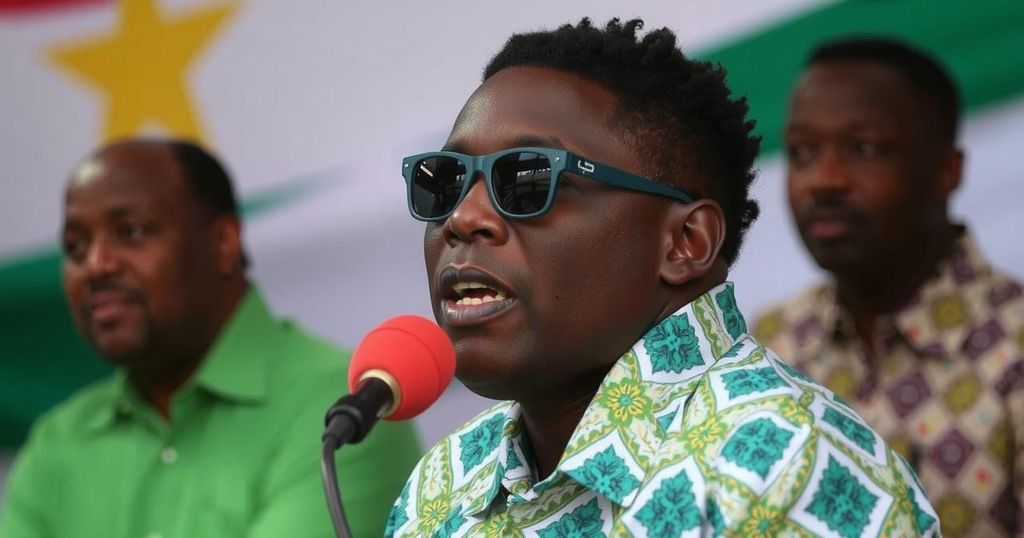The upcoming Ghanaian elections on December 7 feature intense competition between former President John Mahama and ruling party candidate Mahamudu Bawumia. With Mahama promising economic revival and Bawumia focusing on stability, the elections are charged with voter dissatisfaction and rising concerns over economic issues such as inflation and job creation. Independent candidates are capturing youth interest, but the historical dominance of the major parties remains a significant factor.
Ghana is imbued with an atmosphere of anticipation as it approaches its national elections scheduled for December 7, featuring a fierce contest between former President John Mahama and the ruling party’s candidate, Mahamudu Bawumia. Mahama has pledged to create a 24-hour business environment aimed at spurring job growth in an economy that is currently recovering from a $30 billion external debt default experienced in 2022. In contrast, Bawumia has committed to enhancing economic stability despite the lingering challenges posed by post-COVID-19 recovery efforts.
The current political landscape illustrates a dominance of the National Democratic Congress and the New Patriotic Party, as noted by Kwame Asah Asante, a senior lecturer at the University of Ghana. He asserts that these two parties have historically maintained control since 1992, with minor parties collectively failing to garner more than 5% of the vote in previous elections. Nonetheless, the presence of independent candidates like Nana Kwame Bediako has generated interest among the youth, although their overall impact remains limited.
Compounding these dynamics are pressing national issues, including the economic recovery post-COVID-19, illegal mining, and inflation rates that have at times soared to a historic 54%. Voters express deep concern regarding the economy, often referring to it as a “bread-and-butter issue” that will shape their electoral choices. Individuals such as Wisdom Gavor and Janet Bawah criticize the current state’s handling of the economy, seeking transformative pledges from Mahama, while others, like Ivan Duke, credit Bawumia for his successful digitization policies that have reportedly streamlined government procedures and created jobs.
As Ghana’s upcoming elections approach, the electorate exhibits a palpable fervor for change, with many expressing a desire for alternatives to the traditional governing parties. Observations suggest the potential for a highly competitive election, punctuated by pressing economic concerns and a clamoring for increased efficiency and innovative governance.
The nation stands as a stable democracy amidst regional turmoil, promising an election environment charged with varying opinions and expectations.
Ghana, known for being one of the largest cocoa producers globally, faces a critical political juncture with the upcoming national elections. Following a major economic setback in 2022 due to a $30 billion debt default and unresolved post-pandemic challenges, the electoral climate is fraught with social unrest and dissatisfaction towards the current ruling party. Despite historical dominance by two major parties, an emerging independent candidate and the electorate’s desire for change signify a significant moment in Ghana’s democracy.
In summary, Ghana’s approaching national elections represent a pivotal moment characterized by fierce competition between established political forces and a growing sentiment for change among the electorate. Economic stability, job creation, and governance transparency are critical issues that will inevitably shape the outcome. As voters confront pressing challenges ranging from inflation to illegal mining, the outcome remains uncertain, signaling the potential for a highly charged electoral atmosphere on December 7.
Original Source: www.voanews.com






